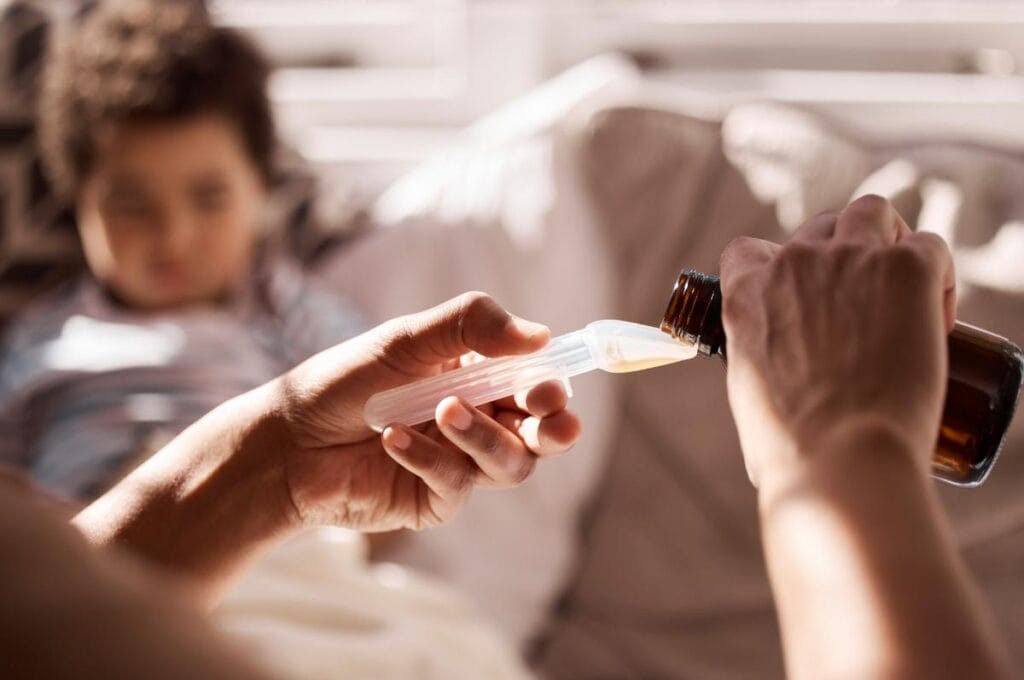Have you ever stood in line at the pharmacy and wondered how exactly the medicine prescribed by your pediatrician made it to those shelves? If you’re like most moms, you probably have questions about medication safety and effectiveness. As parents, we’re naturally cautious, because we’re responsible for our child’s well-being. Understanding the basics of how medicines are created and tested can help you feel more confident when your doctor recommends a new prescription for you or your little ones. Here’s what you need to know!

The Initial Discovery Stage
Before any medication arrives at your local pharmacy, scientists spend years working behind the scenes. It all starts in research labs where researchers explore how different substances affect our bodies. Sometimes these discoveries come from unexpected places—like studying natural ingredients, existing medications, or entirely new compounds. For instance, aspirin originally came from compounds found in willow bark, and penicillin was famously discovered from mold! Knowing that medicines start out as careful scientific discoveries can give us peace of mind as parents.
Rigorous Testing and Quality Assurance
Once scientists identify a promising new medicine, rigorous testing follows to ensure its safety, effectiveness, and consistency. A crucial step here is something called CMC pharmaceutical development. CMC stands for Chemistry, Manufacturing, and Controls, and it’s essentially the behind-the-scenes process that makes sure every batch of medicine produced meets strict quality standards. It includes everything from sourcing ingredients and manufacturing safely to packaging medications so they reach your family exactly as intended. Understanding that each medication goes through this extensive quality-checking step can reassure you when you open that prescription bottle for your child.
Clinical Trials Explained Simply
After a medication passes initial quality testing, it moves on to clinical trials. You might have heard this phrase but wondered what it really means. Clinical trials are controlled studies where the medication is tested on human volunteers under very careful supervision. These trials help scientists determine how effective the medication is, the best dosage, and whether it has any potential side effects. Clinical trials happen in several phases and always prioritize safety above everything else, especially when involving children. As a mom, it’s comforting to know that safety is taken seriously every step of the way.
Why FDA Approval Matters
You’ve probably noticed that most medications mention FDA approval on their labels. But why is FDA approval so important? The Food and Drug Administration (FDA) is the U.S. government agency that ensures medications are both safe and effective before they become available to the public. Approval from the FDA means a medication has passed strict testing and evaluation standards. When a medication receives FDA approval, it’s a solid indicator you can trust it for your family.
Monitoring for Long-Term Safety
Medication safety doesn’t stop once it hits pharmacy shelves. After medicines are approved and released to the public, ongoing monitoring continues. This is called post-marketing surveillance, and it’s how health authorities track any long-term effects or rare side effects that might not have shown up during clinical trials. Moms have an important role in this step, too! Always report any unusual reactions or side effects you or your child experience to your doctor or pharmacist. Your feedback helps keep medications safe for everyone.
Generic vs. Brand-Name Medications: What Moms Should Know
As parents, managing the family budget is essential. So, you’ve probably wondered: Are generic medications just as safe and effective as brand-name ones? The short answer: absolutely. The FDA ensures that generic medications contain the same active ingredients and offer the same benefits as their brand-name counterparts. The biggest difference typically comes down to price, packaging, and branding. Choosing generic medications can help you save money without compromising quality or safety, giving you more peace of mind as a mom.
Pediatric-Specific Medication Testing
Ever wondered why pediatricians emphasize that some medications aren’t suitable for kids? Children aren’t just smaller versions of adults. Their bodies process medications differently at various stages of development. That’s why pediatric-specific testing is so important. Medicines specifically intended for kids go through additional testing to ensure safe dosage and effectiveness at each age. Knowing that medications specifically tested for kids are carefully vetted can help you confidently administer them when your child is under the weather.
How Moms Can Stay Informed and Ask Questions
As parents, we’re our children’s best advocates, especially regarding their health. One of the easiest ways to feel confident about the medications you give your family is simply to ask questions. Don’t hesitate to ask your doctor or pharmacist for clarity about prescriptions. Consider writing down questions ahead of appointments so you don’t forget. Trustworthy resources like the CDC, American Academy of Pediatrics (AAP), and FDA websites are excellent places to find reliable information in plain language.
When you know how medicines are developed and approved, you’re empowered to make informed health decisions for your family. Understanding the journey a medication takes—from discovery and rigorous testing through FDA approval and beyond—can help you approach your pharmacy visits with confidence. After all, a little knowledge can go a long way toward keeping your family healthy and safe.
